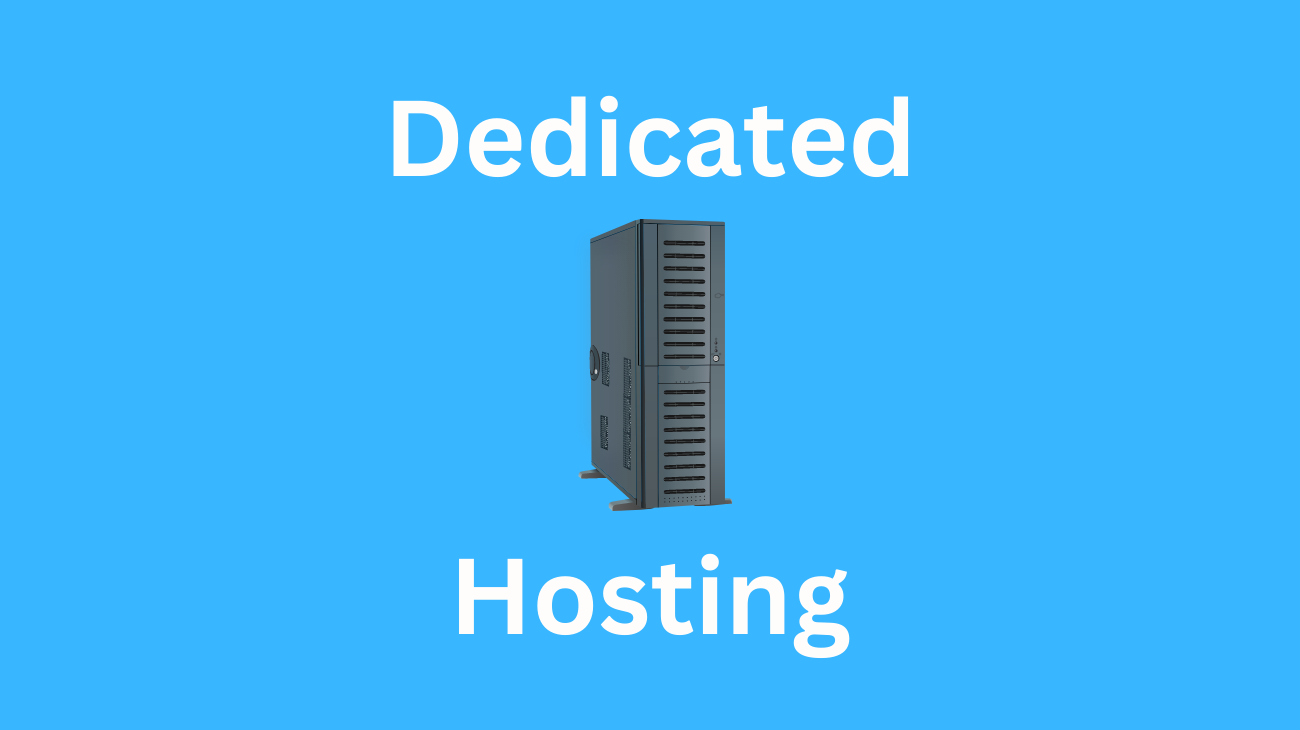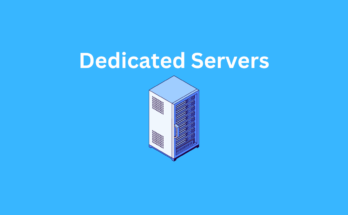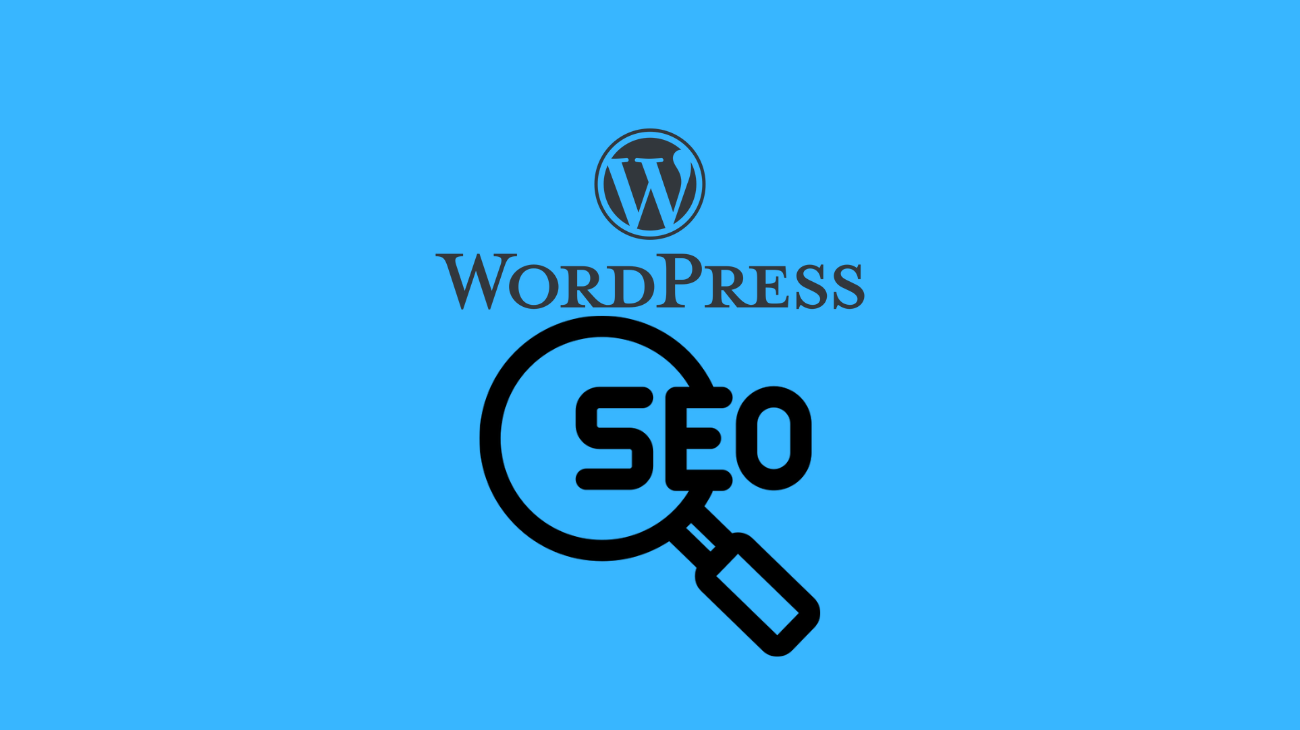In the ever-evolving landscape of web hosting, finding the ideal solution to meet your website’s demands is crucial for success. Among the array of options available, dedicated hosting stands out as a powerful and reliable choice for businesses and individuals alike. In this comprehensive guide, we’ll dive deep into the world of dedicated hosting, exploring its benefits, use cases, and factors to consider when choosing this hosting solution.

ALSO READ: Unveiling the Power of VPS Hosting: Your Ultimate Guide
Table of Contents
- Understanding Dedicated Hosting
- Advantages of Dedicated Hosting
- Unparalleled Performance
- Enhanced Security
- Full Control and Customization
- Scalability
- When to Choose Dedicated Hosting
- E-commerce Websites
- High-Traffic Platforms
- Resource-Intensive Applications
- Factors to Consider
- Hardware Specifications
- Managed vs. Unmanaged Hosting
- Technical Support
- Cost Considerations
- Setting Up Your Dedicated Server
- Choosing an Operating System
- Control Panel Options
- Data Migration
- Best Practices for Dedicated Hosting
- Regular Monitoring
- Security Measures
- Backups and Disaster Recovery
- Conclusion
1. Understanding Dedicated Hosting
Dedicated hosting involves leasing an entire physical server that is exclusively dedicated to your website. Unlike shared or VPS hosting, where resources are shared among multiple users, dedicated hosting provides you with complete control over the server’s resources, allowing for optimized performance and customization.
2. Advantages of Dedicated Hosting
- Unparalleled Performance: With dedicated hosting, your website enjoys dedicated CPU power, RAM, and disk space, resulting in lightning-fast loading times and seamless user experiences.
- Enhanced Security: Since you’re the sole occupant of the server, security risks are significantly reduced. You have complete control over security protocols, minimizing the chances of data breaches.
- Full Control and Customization: From selecting the hardware components to configuring software, you have the freedom to tailor the server environment to your specific needs.
- Scalability: Dedicated hosting is highly scalable, making it an excellent choice for websites that anticipate rapid growth. You can easily upgrade your resources as your site’s demands increase.
3. When to Choose Dedicated Hosting
- E-commerce Websites: Online stores dealing with sensitive customer data and high traffic volumes benefit from the added security and performance of dedicated hosting.
- High-Traffic Platforms: Websites with consistently high traffic require the dedicated resources to ensure uninterrupted service even during traffic spikes.
- Resource-Intensive Applications: Applications like gaming servers or video streaming platforms demand substantial resources, which dedicated hosting can provide without compromising performance.
4. Factors to Consider
- Hardware Specifications: Choose a hosting provider that offers up-to-date hardware, including CPUs, RAM, and storage, to ensure optimal performance.
- Managed vs. Unmanaged Hosting: Decide whether you want a managed dedicated server, which includes technical support and maintenance, or an unmanaged one that requires you to handle all server-related tasks.
- Technical Support: Evaluate the quality of customer support the hosting provider offers, especially if you’re not well-versed in server management.
- Cost Considerations: While dedicated hosting offers unparalleled benefits, it comes at a higher cost compared to shared hosting. Balance your budget with your website’s requirements.
5. Setting Up Your Dedicated Server
- Choosing an Operating System: Select an operating system that aligns with your familiarity and the software requirements of your website.
- Control Panel Options: Control panels like cPanel or Plesk simplify server management tasks, offering user-friendly interfaces for configuration.
- Data Migration: Plan the migration process carefully to minimize downtime and data loss during the transition to your dedicated server.
6. Best Practices for Dedicated Hosting
- Regular Monitoring: Keep a vigilant eye on server performance, resource utilization, and potential security threats. Utilize monitoring tools to stay proactive.
- Security Measures: Implement robust security protocols, including firewalls, regular updates, and encryption, to safeguard your server and data.
- Backups and Disaster Recovery: Regularly back up your data to remote locations and establish a disaster recovery plan to mitigate potential data loss.
Conclusion
Dedicated hosting is a potent solution that empowers websites with the resources, security, and customization they need for optimal performance. By understanding the advantages, use cases, and key considerations associated with dedicated hosting, you can make an informed decision that aligns with your website’s goals and requirements. Whether you’re running an e-commerce empire or a resource-intensive application, the world of dedicated hosting awaits, ready to elevate your online presence to new heights.
Buy Dedicated Server Hosting Here!





One Comment on “Unveiling the Power of Dedicated Hosting: The Ultimate Guide”